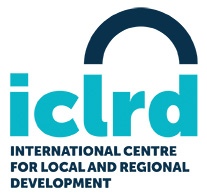In June 2013, the Framework for Cooperation: Spatial Strategies for Northern Ireland and the Republic of Ireland was jointly published by the Department for Regional Development (Northern Ireland) and Department of Environment, Community and Local Government (Republic of Ireland). The significance of this inter-jurisdictional strategic planning framework is that it highlights the operational realities of facilitating cross-border planning and governance between the Republic of Ireland and Northern Ireland. It asserts a joint commitment to securing a cooperative approach between the two states through a non-statutory document. In parallel, both jurisdictions are pursuing separate proposals to enhance community planning engagement and capacity. In Northern Ireland, the proposal to introduce community planning falls under the Review of Public Administration – which will herald the reorganisation of local government – together with the transfer of statutory land use planning functions from the centre to the new local authorities. Similarly, the Republic of Ireland is also witnessing a strengthening of its local governance arrangements. The Local Government Reform Act 2014 paves the way for the creation of new local economic and community plans (LECP), which facilitate the better integration of public bodies, social and community partners to collaboratively work on integrated plans for specific actions in communities.


